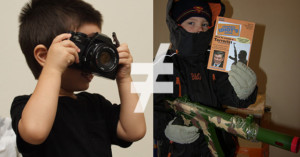
Security Guards in UK Finally Taught that Photographers Not Always Terrorists
It looks like all the negative news stories about photographers’ rights in the UK is finally causing …

It looks like all the negative news stories about photographers’ rights in the UK is finally causing …

German satire program Extra 3 conducted a humorous — albeit disconcerting — experiment testing photographers’ (and videographers) rights in …

In response to the "widespread, continuing pattern of law enforcement officers ordering people to stop taking photographs or video in public places", the American Civil Liberties Union has published a helpful article that clearly details what your rights are as a photographer in the United States.
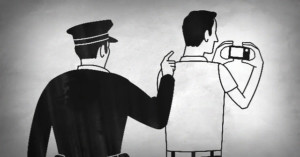
Here’s a startling video on how 9/11 turned using a camera in public into a “suspicious activity”: After 9/11, …

Boston lawyer Simon Glik was arrested on October 1, 2007 when he used his cell phone to record officers making a drug arrest, and later sued the city and the officers for violating his rights. After the officers tried to having the lawsuit dismissed on the basis of qualified immunity, a Federal Appeals Court denied the motion last week and ruled that filming and photographing police is in fact protected by the First Amendment.

The Long Beach Police Department's hunt for photos with "no apparent esthetic value" quickly became national news last week. Here's a news segment in which Alyona Minkovski of RT speaks out against the erosion of photographers' rights in the United States.

What do you think of this photo of a refinery by photographer Sander Roscoe Wolff? Apparently Long Beach police …

Freelance news photographer Phil Datz was recording the conclusion of a police chase from the opposite sidewalk last Friday …

There has been a lot of discussion regarding social media sites and their scary-sounding terms of services that always …

Here’s a short clip from the talk show Stossel where American libertarian journalist …

On June 21, 2011, non-profit organization Shoot Experience sent out six photographers to various parts of London to see the current state of photographers' rights.
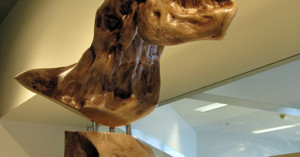
Here’s an update to the whole monkey copyright story that’s been swirling around the blogosphere as of …
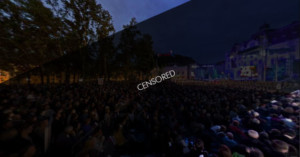
If your photographs ever include the faces of strangers, you might not want to move to …

A little update to the recent brouhaha over Google+’s Terms of Service: …
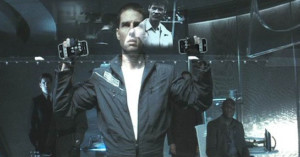
If ordinary citizens have the right to photograph police in public places, what about the other way around? That’s …
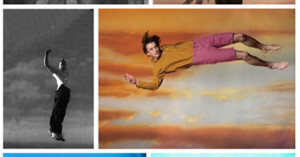
At what point does inspiration turn into plagiarism? That's the question that popped up last year when Rhianna was sued by David LaChapelle over scenes found in one of her music videos, and it's the same issue with a lawsuit recently filed by photographer Janine Gordon against photographer Ryan McGinley. Gordon claims that 150 of McGinley's images -- including some used for a Levi's ad campaign -- are "substantially based" on her photos. In the three pairs of disputed images shown above, the ones on the left are by Gordon and the ones on the right by McGinley.

Just as the monkey photography story was dying down, a new twist emerges: on Monday tech blog TechDirt received an email from Caters News, the agency representing wildlife photographer David Slater, whose camera was hijacked by a monkey and used to shoot a number of self-portraits.

Last year Scott Bourne caused some commotion among photo-enthusiasts by claiming that Twitter's ToS forced photographers to give up rights to photos shared through the service. After Google launched their new Google+ social network, Bourne again wrote a very similar post warning his readers about the ToS. We weren't planning on weighing in, but seeing that the FUD has spread to our comments and even The Washington Post, we'd like to clear some of it away for our readers.

When we shared the story of how monkeys hijacked photographer David Slater's camera and unwittingly snapped some self-portraits, we asked the question "doesn’t the monkey technically own the rights to the images?" Techdirt, a blog that often highlights copyright issues, went one step further and dedicated a whole post to that question.

Update: We hear that all charges against Rhonda Hollander have been dropped after a judge found the testimony “not credible.” …

Tennessee Governor Bill Haslam signed a new law last week that makes it …
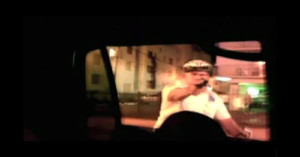
On Memorial Day 2011, Narces Benoit witnessed and filmed a group of Miami police officers shooting and killing a …

Apple recently filed a patent having to do with baking infrared communication capabilities …

29-year-old student and avid photographer Christopher Fussell was taking photographs of trains at a Baltimore station back in March …

Libertarian magazine Reason created this video about the erosion of photographers’ rights in …

In November 2010, Talking Points Memo published …

After Space Shuttle Endeavour launched on its final mission, a woman named Stefanie Gordon snapped …

Apparently this is what some police officers see when they look at a camera, which explains the horror stories of photographers being harassed by law enforcement for having cameras and making pictures.

Since launching in 2008, TwitPic has been at the center of quite a few copyright controversies and legal battles, especially when disasters strike and Twitter users are able to publish photos of things that are happening well before major news outlets. Back in early 2010 photographer Daniel Morel had an iconic photograph taken during the Haiti earthquake widely republished in newspapers across the world without his permission after he uploaded the photos to TwitPic, then later that year Twitter's decision to display TwitPic photos directly on their website caused a brouhaha. TwitPic has finally decided to update their Terms of Service to make it clear that users of the service retain the copyright of everything they upload.

New Jersey is considering a new law that would make it a third-degree crime to photograph children without parental consent. More specifically, bill A3297 would prevent people from shooting photos or videos of children when "a reasonable parent or guardian would not expect his child to be the subject of such reproduction".